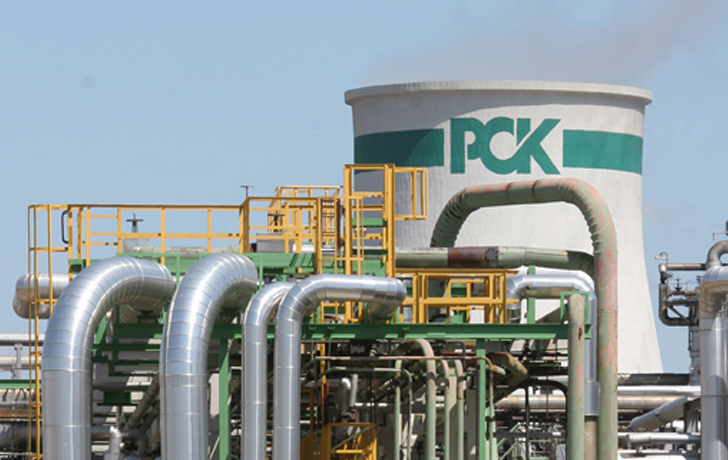Oil shipments from Kazakhstan to Germany may potentially replace the supplies being reloaded at Poland’s Naftoport, which manages Poland’s crude oil and petroleum shipments in Gdańsk. This could indicate a renewed German reliance in the eastern direction, which is heavily influenced by Moscow.
Kazakh President Kassym-Jomart Tokayev’s recent visit to Berlin was in connection to Kazakhstan oil supplies to Germany, with the main recipient of these supplies being the German refinery in Schwedt. Increased imports from Kazakhstan to Schwedt may signal Germany’s growing dependence on energy supplies strongly influenced by Russia.
Tokayev’s official visit to Berlin on Sept. 28 highlights the intent to strengthen economic ties between Germany and Kazakhstan and Central Asia. The German government declared that the discussions with Chancellor Olaf Scholz pertained to infrastructure connecting Central Asia and Germany. Presidents from Kyrgyzstan, Tajikistan, Turkmenistan and Uzbekistan also visited Berlin on Sept. 29.
For Germany, the oil shipments from Kazakhstan are crucial. The east German PCK refinery in Schwedt processes 10-12 million tons of oil annually. Last year, 100 percent of this raw material came from Russia and reached Germany through the Druzhba pipeline across Russian and Polish territories. Starting Jan. 1, PCK began purchasing oil on international markets, with nearly half being executed through the oil port in Rostock.
In June, during a visit by German President Frank-Walter Steinmeier to Kazakhstan, an agreement was signed for oil deliveries to Schwedt, totaling 100,000 tons monthly, valid until the end of 2024. The oil reaches Germany through the Druzhba pipeline, traversing Russian territory, which requires the Kremlin’s approval. According to the German Ministry of Economy and Climate Protection, this transmission network also contains Russian oil. But, in balance, Germany pays for this as Kazakh oil.
Polish authorities question the deliveries of Kazakh oil, termed KEBKO, to Germany. Lab tests in Poland have indicated that the oil, purportedly from Kazakhstan, shares an identical chemical composition with Russian oil.
Local politicians in Brandenburg disagree with the actions of the Polish side and are advocating for enhanced cooperation with Kazakhstan.
If there’s an increase in oil supplies from Kazakhstan to Germany, it will primarily affect volumes reloaded through Naftoport in Gdańsk. Additionally, Rosneft, the main shareholder of the refinery and also the party ordering oil from Kazakhstan, will benefit. As the expert and editor-in-chief of BiznesAlert Wojciech Jakóbik explains, the alternative would be supplies bypassing the Russians, thanks to Naftoport.
Naftoport in Gdańsk, where oil from around the world reaches Poland, would significantly benefit efficiency and processing capabilities with the establishment of a second line of the Pomeranian oil pipeline. However, withholding supply orders by shareholders of the Schwedt refinery disadvantages Naftoport and its associated infrastructure development. Jakóbik clarifies that without a clear declaration from Schwedt, further expansion of oil infrastructure in Poland beyond its market needs would not be justified.
In the state of Brandenburg, which is where Schwedt and the PCK refinery are located, there’s significant support from regional politicians for importing oil from Kazakhstan. Notable supporters include district administrator Karina Dörk (CDU), Jens Koeppen (CDU), and former Brandenburg Deputy Prime Minister Christian Görke (Left Party). They also previously opposed Germany relinquishing Russian oil. Dörk expressed gratitude to Kazakhstan for increasing its supplies, stating the Urals oil flowing through Russia’s Friendship pipeline is particularly beneficial, as it allows PCK to produce asphalt.
Germany’s fuel industry also favors increased shipments from Kazakhstan. When Deutsche Welle sought comments, they emphasized the benefits of higher oil deliveries to the PCK refinery.






